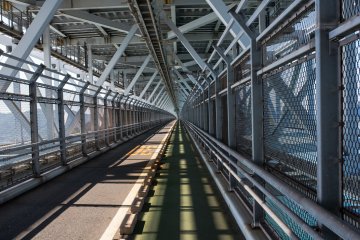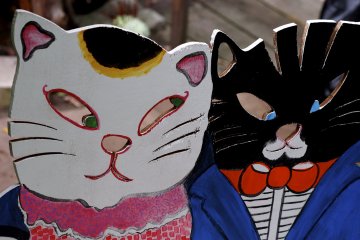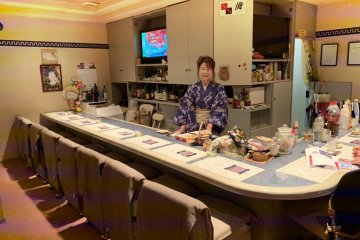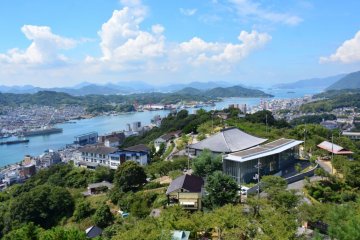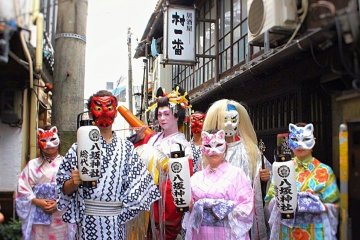Hiroshima is well known among locals for the beautiful inland seaside villages of Onomichi and Tomonoura. These coastal destinations offer an abundance of nature, history, and sightseeing, but beyond the obvious tourism appeal, there is much more to discover in the backstreets and nightlife.
The Shingai (新開) downtown district of Onomichi provides a collection of incredible drinking and dining locales. The nightlife scene is comfortably arranged in narrow alleys a few hundred meters across making the area a fun neighborhood for bar-hopping. Visitors can easily take in five or six bars in a single outing and, with a wide variety of themes and types, no two experiences will be the same. Walking the cobblestone backstreets and discovering what awaits around the next corner is half of the fun.

Ittoku (いっとく) is a local company that owns several of the restaurants and guesthouses in the Shingai area. They are a foreigner-friendly company and several of the below recommendations are businesses within their group.
The locals are less accustomed to foreigners and the areas are far less crowded, two factors that tend to make people more open and friendly in conversation. It is not uncommon for people to approach and give advice and recommendations on where to visit or what local specialties to taste. You may even have someone buy you a drink or two!

Before you get to drinking, there are dozens of spots for food and snacks, many specializing in Hiroshima specialties such as grilled eel, okonomiyaki, tsukemen, and ramen. It goes without saying that the seafood in this coastal village is beyond compare, with fresh oysters and sushi being a few of the must-eats. For those with a sweet tooth, lemons are one of the area's staple fruits so be on the lookout for lemon pudding, cheesecake, and tarts.

Speaking of snacks, there is a special type of bar in Japan called a "snack" (sunakku) that is abundant in this neighborhood. A snack bar provides a place to unwind and have a drink, but it is also an intimate bar experience where customers are seated at the bar counter across proprietresses who specialize in communication and entertainment. Snack bars often include karaoke or other forms of light entertainment, but the main appeal is the staff and the attentiveness they show their guests. The staff is composed primarily of young and middle-age females who are eager to communicate and keep their customers happily buying drinks until the late hours of the night. Many foreigners find snack bars a place of learning and excitement and it is one of the easiest places to communicate with locals for advice on all things Japan. A snack bar falls outside adult entertainment, but for the more adventurous drinkers, red-light locations begin to reveal themselves as you get later into the night.

Other than snack bars, the Shingai district is filled with all sorts of Japan-style bars including izakaya (dine and drink), karaoke, tachinomi (casual standing bars), and yokocho (open-air bars). There are also traditional cocktail bars and wine bars in the area that offer international and local flavors. If you are into street walking and bar-hopping, the Shingai neighborhood has an abundance of destinations and an engaging local crowd.

Area Accommodation
After your fill of drink, there are a number of places to stay and one of the unique points of Shingai is the inn-style lodging. Many bars provide lodging directly above the bar. This makes the walk home much more bearable! There are also a number of guesthouses which are an inexpensive way to board or bunk and make some pub-crawling friends while you are there.
One recommended guesthouse is the Singai Cabin. This location is in the heart of Shingai and offers multiple room types from private to dormitory-style. Another recommendation is the Sima Inn which fuses Japanese and western style in a stylish space. Lastly, there is a rental space (Sima Salon) that can be rented by the hour or day and can accommodate large groups for parties and accommodation. More information on all three types can be found on their main website (Japanese only).
Otherwise, a general list of accommodation information in the Onomoichi area can be found on this website (English).
Neighborhood Tours and Activities
The Shingai neighborhood plans to open up nightlife tours in the price range of 15,000 that includes a bar-hopping experience between three to five bars with a local student guide to help you out along the way with communication and directions. These are not available yet, but Japan Travel will likely offer these in our shop in the near future.
As a unified district, Shingai also hosts festivals and events several times a year that transform the neighborhood with dance and song. When we visited, the street was filled with merry drinkers and a large stage was set in the center for dance and music performances.

Oiran, a traditional courtesan in Japan, are also to be found in the area. Oiran culture has been prevalent in Shingai for hundreds of years and there are still traces to be seen in festivals, local bars, and clubs that keep the history alive.

Other Things to Do
Shingai is also famous for a rich culture filled with foods, art, and shopping. The Shingai neighborhood has one of the most famous vinegar factories in all of Japan with a history dating back hundreds of years. Visitors are welcome to tour the facilities (with advance reservations) and purchase various types of vinegar including malt, standard, and unique varieties such as fig and grape that can be mixed into a delicious beverage. For more information check out their official website (Japanese).

There are many more fun things to do around Onomichi for those looking to spend a few days in the area. Check out the skylift to get an aerial view of the city, or walk down cat alley for some fun cafes and the famous Senkoji Temple.




